- Register
- Log in to Tune-In
- Wishlist (0)
-
Shopping cart
(0)
You have no items in your shopping cart.
Beatles News
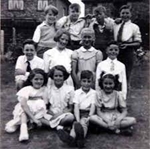
he Beatles legend became one of the most successful singer-songwriters of all time but he and his brother Mike were met with a tough crowd when they performed at a Butlin's holiday camp as a child, reports.
McCartney was just 11 when he performed in the talent show after he had been taught to harmonise by his father James and the siblings did their best to channel The Everly Brothers.
The 81-year-old star recalled on his new podcast 'McCartney: A Life in Lyrics', "The Everly Brothers sang in harmony, so me and my brother did. We sang 'Bye Bye Love'. We didn't win - obviously not talented enough for the Butlin's crowd!"
McCartney previously described how his childhood holiday to Butlin's was a great adventure. He told the Daily Mirror in 2021, "I was 11 when I went to Butlin's Pwllheli holiday camp and the photos of me show I'm still wearing my school cap and short school trousers."
Source: timesofindia.indiatimes.com
details
George Harrison discussed the behind-the-scenes of The Beatles' first 'Ed Sullivan Show' set, and what was "tacky" about the show's production.
The Beatles‘ Ed Sullivan Show set changed rock ‘n’ roll, music in general, and the entire course of human history. No, that’s not going too far. Shockingly, George Harrison revealed he didn’t even rehearse for this seminal event. Here’s why — and why the performance mattered so much to him.
The book George Harrison on George Harrison: Interviews and Encounters features an interview from 1977. During that interview, George discussed the behind-the-scenes of The Beatles’ first Ed Sullivan Show appearance. “The Sullivan show was funny because I didn’t attend the rehearsal, I was sick somehow on the flight over on the first trip to the States,” he recounted.
Sullivan’s crew wasn’t all that helpful. “The band did a long rehearsal for the sound people, they kept going into the control room and checking out the sound,” recalled George. “And finally, when they got a balance between the instruments and the vocals, they marked on the boards by the control and then everybody brok details

Brisbane music writer Sean Sennett flew to Adelaide to see Paul McCartney and host a conversation with him at an exclusive fan event and he says we are all in for the treat of our lives when the former Beatle’s Got Back tour arrives in Queensland
It’s twenty-four hours before Paul McCartney is due to officially start his Australian tour. He is getting ready to play a short set to 15 competition winners.
Apart from McCartney’s crew, the winners, their guests and a smattering of media the Adelaide Entertainment Centre is virtually empty. This hardly matters a jot to McCartney who performs a blistering twenty-five-minute collection of songs comprised of Beatles’ hits, highlights from his solo career and deep cuts.
Earlier in the afternoon your correspondent had the privilege of chatting to McCartney first on stage, and facilitating questions from the small audience. Relaxed and wearing a dark hoodie, you only need two minutes in McCartney’s company and you’re knocked out by the man’s warmth, candour and, of course, his catalogue. Having interviewed him previously McCartney’s warmth is always immediate.
Source: Bryanna Rossow/inqld.com.au
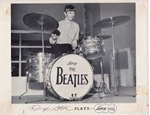
Ringo Starr joined the Beatles in 1962, replacing original drummer Pete Best as the band’s permanent timekeeper. Even before he became part of the Fab Four, though, Starr was, well, a star.
“He was in one of the top groups in Britain, but especially in Liverpool, before we even had a drummer,” John Lennon explained during an interview with Playboy in 1980. “So Ringo’s talent would have come out one way or the other…I don’t know what he would have ended up as, but whatever that spark is in Ringo that we all know but can’t put our finger on—whether it is acting, drumming, or singing, I don’t know—there is something in him that is projectable, and he would have surfaced with or without The Beatles.”
He did surface with The Beatles, though, contributing to the band’s catalog not only as a drummer, but also as an occasional vocalist and songwriter. He wasn’t a technical player—”none of us are technical musicians,” Lennon added during the same Playboy interview—but he was inventive, filling the band’s songs with unlikely grooves, funky fills, and surprising tempo changes. He played drums like a composer, details
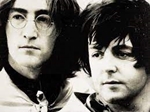
There may very well have been a point of no return between Paul McCartney and John Lennon.
When The Beatles finally called it a day in 1970, tensions were at an all-time high between each of the iconic bandmates.
Marred by squabbling, creative differences, and a loss of passion for the band's future meant there was only one way it was going to go.
During the recording of their final album Let It Be - offered a new perspective in Peter Jackson's 2021 documentary Get Back - Paul McCartney, John Lennon, George Harrison and Ringo Starr still showed frequent flashes of their collective genius.
However, the cracks were very much appearing, and grew more irreparable by the day, with Yoko Ono joining every session, George growing frustrated with his songwriting contributions being consistently ignored, Ringo evidently disinterested in the band politics, leaving Paul to drag them all through the recording process.
Source: Thomas Curtis-Horsfall/goldradiouk.com
details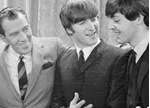
The Beatles played a killer set of songs during their first appearance on The Ed Sullivan Show. Some of those songs are still famous and some are not. George Harrison discussed the band’s mindset leading up to their set.
According to Kiro 7, The Beatles made their first Ed Sullivan Show appearance on February 9, 1964. The Fab Four started their set with their classic love song “All My Loving.” While The Beatles played the tune during this seminal moment in their careers, the tune is mostly forgotten in the United States and rarely receives play on rock radio.
Then, the band performed a show tune called “Till There Was You.” For context, musical theater had a much bigger influence on popular music during the early 1960s than it does now. The first half of the band’s set closed with “She Loves You,” the first song of the night that’s still really famous in the U.S.
Source: Matthew Trzcinski/cheatsheet.com
details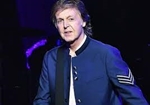
Paul McCartney felt guilty while he was making the album ‘McCartney III’. In addition, he felt crafting McCartney III was a lot more fun than crafting other albums.
“Guilt” isn’t an emotion I would associate with Paul McCartney‘s album McCartney III. Despite this, Paul said he felt guilty while he was making the album because of his personal situation. In addition, he revealed why he felt that crafting McCartney III was a lot more fun than crafting other albums.
Paul started the 1970s with an album called McCartney, the 1980s with an album called McCartney II, and the 2020s with an album called McCartney III. During a 2020 interview with Uncut, Paul discussed working on McCartney III during the coronavirus (COVD-19) lockdowns.
“If you think about it, The Beatles toured a lot, then we stopped touring and made Sgt. Pepper,” he said. “So that idea of having all the time in the world to do what you like doing isn’t new to me.
“But while I enjoyed it, at the same time I felt a bit guilty because I know a lot of people are having a very hard time,” he added. “It’s a double-edged sword. You felt sorry for people who don& details

On a transatlantic flight in the late 1960s, George Harrison – the 'Quiet Beatle' – was sitting in first class with his eyes closed, chanting in an undertone. A cabin attendant asked him if he wanted anything. 'F*** off!' George snapped. 'Can't you see I'm meditating?'
After the Beatles discovered mysticism and India, George took to obsessive chanting and spinning a prayer-wheel. But far from bringing the promised inner peace, it seemed only to make him moody and irritable.
'He wanted so much to be a spiritual being but could never reach the level he wanted to,' his wife Pattie said. Ringo Starr remarked his friend had 'two bags – the bag of beads and the bag of cocaine'.
Harrison recognised this, telling one of his spiritual advisers: 'Maybe it's something to do with me being Pisces, one fish going this way, the other that way. There are periods when I can't stop chanting, and other periods when I turn into a demon again.'
Source: Philip Norman Beatles Biographer/dailymail.co.uk
details
Paul McCartney reveals his favorite albums that he can’t live without. The Beatles’s bass guitarist and back vocal Paul McCartney shares his favorite 5 albums of all time.
Paul McCartney is one of the most influential figures in popular rock music and has eternally affected the music business as a musician, composer, and multi-instrumentalist. The Beatles bass guitarist and back-up vocalist has become an icon throughout his six-decade career and continues to surprise fans with his timeless songs and creativity.
Sir Paul McCartney, born June 18, 1942, is a famed British musician, singer, and songwriter who became famous as a member of the legendary band The Beatles.
McCartney’s musical career began in the 1960s with The Beatles when his joint songwriting collaboration with John Lennon created some of the most memorable and enduring songs in popular music history. Songs like “Hey Jude,” “Yesterday,” and “Let It Be” show McCartney’s talent for creating emotional songs and profound lyrics that stay popular with fans of all ages.
Following the breakup of The Beatles in 1970, McCartney launched a successful solo career, releasing popular album details

Paul McCartney has revealed his fond thoughts when he looks back at his days with The Beatles.
The 81-year-old rock legend tells The Herald Sun that he feels 'joy' when he sees old photos or videos of the foursome.
'When you look at pictures of yourself quite a bit younger, there's a lot of emotions. I think one is, "Boy, didn't I look good?"' he said.
'Well, we all looked young and beautiful. I think everyone experiences that. You look at pictures of yourself in college and you think, "God, I didn't even think I looked good, but I was wrong; I do look good."'
He added: 'I'm very proud to have been through that period and to be able to have had the luxury of capturing that period. How great does John look?
Source: Marta Jary/dailymail.co.uk
details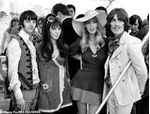
George Harrison's ex-wife Pattie Boyd remembers the Beatle's shocking affair with his former bandmate Ringo Starr's wife in an excerpt from Philip Norman's new biography George Harrison: The Reluctant Beatle, published by the Daily Mail.
Boyd recalled Maureen Starkey, the mother of Ringo's three children, visiting their Friar Park mansion late at night in 1973, on the pretext of "listening to George in the studio," and staying until the morning.
"Her attitude was very much that she had the right to spend the night with George if she felt like it," Boyd said.
On one occasion, the two of them disappeared upstairs together during the day while musicians were waiting to record with Harrison. "I thought: 'This is being deliberately rubbed in my face. He and Maureen want me to know this is happening,'" Boyd said.
Source: Peter Helman/themessenger.com
details

Sir Paul McCartney has told how he would have been wracked with guilt if he had not repaired his friendship with John Lennon before he was murdered.
The Beatles legend John was shot dead at the age of 40 by unhinged fan Mark Chapman outside his home in New York City in 1980.
John left The Beatles in 1969 and he had become embroiled in legal battles over the band's back catalogue which caused tension between him and his former song-writing partner Sir Paul, now 81.
They got their friendship back on track in the mid 1970s and Sir Paul spent time at the home John shared in New York with his second wife Yoko Ono.
But Sir Paul admits he would have been devastated if he had not had the chance to repair the cracks in his relationship with John before he was killed.
Source: Owen Tonks/dailymail.co.uk
details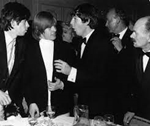
Keith Richards, the legendary guitarist of The Rolling Stones, is currently on the cover of Guitar Player magazine as he continues to promote the new album from his band. The group is back with their first full-length of new material in 18 years, Hackney Diamonds, and the members have been busy pushing the set for weeks.
In his cover story interview, Richards talks about the band’s new music, missing late member Charlie Watts and, perhaps most intriguing, the decades-long relationship between The Rolling Stones and The Beatles.
Richards remarked on the profound connection that has always existed between The Beatles and The Rolling Stones. He emphasized their differences while acknowledging the strong bond they shared. "The Beatles and the Stones have been basically joined together at the hips from the beginning," Richards stated. "We were totally different bands, but we knew each other well."
Source: Hugh McIntyre/forbes.com
details
Paul McCartney played drums for Ringo Starr on a song he wrote for him. Here's why you won't hear his drumming on the song.
Ringo Starr and Paul McCartney have known each other for the vast majority of their lives. They worked together closely in The Beatles, but they’ve collaborated, on and off, in the decades since the band broke up. Most recently, McCartney wrote Starr a song for his EP Rewind Forward. He even recorded a version for Starr that featured himself singing and playing the instruments, including drums. Starr joked that McCartney’s drumming was not up to his standards.
Source: Emma McKee/cheatsheet.com
details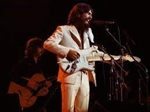
The paradoxes of George Harrison’s career can perplex even the most casual Beatles fans. Taken together the contradictions are as much a part of the band’s legend as John Lennon’s solipsism or Paul McCartney’s eagerness to please. Here, after all, was a global pop star who played lead guitar in the most influential group in history and yet was regarded as its invisible man. He was a paid-up antimaterialist whose first significant Beatles song, “Taxman,” was a scarifying assault on the U.K. tax regime, and a sharp-eyed scourge of selfishness (see his final contribution to the Beatles’ oeuvre, “I Me Mine”) whose emotional life seems to have been a gargantuan exercise in having your cake and eating it. Being in the Fab Four might have given Harrison (1943-2001) fame, wealth and boundless opportunity, but as Philip Norman shows in this absorbing biography, the burden it placed on his far-from-resilient shoulders stayed with him for the rest of his life.
Source: D.J. Taylor/wsj.com
details